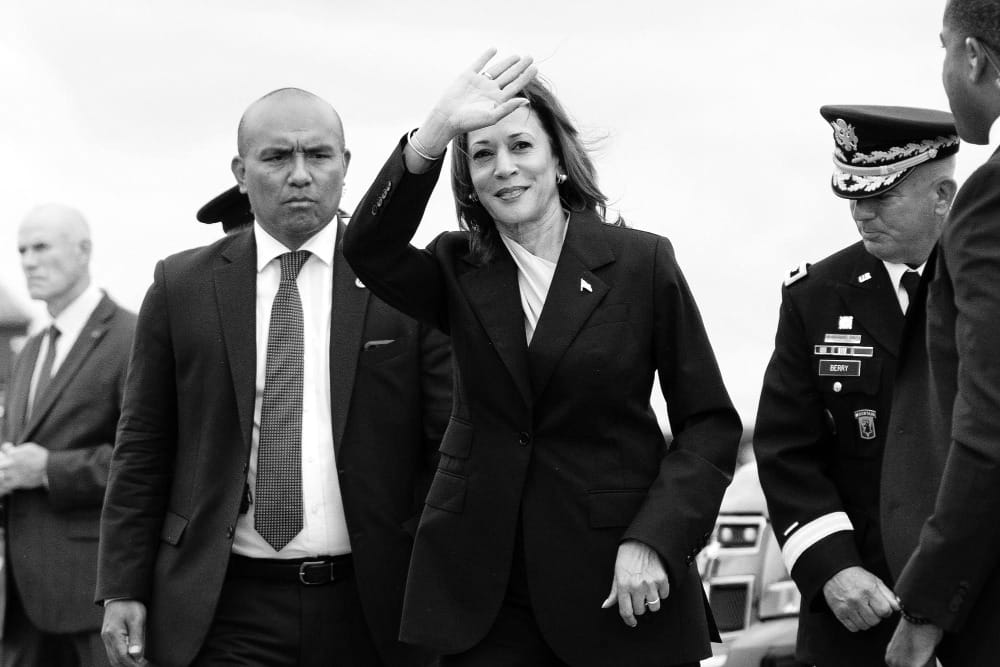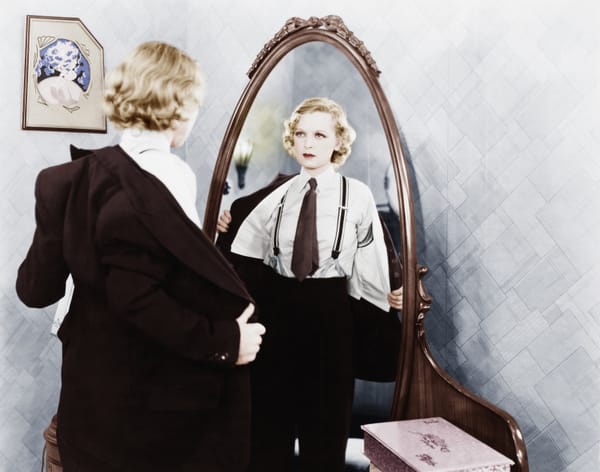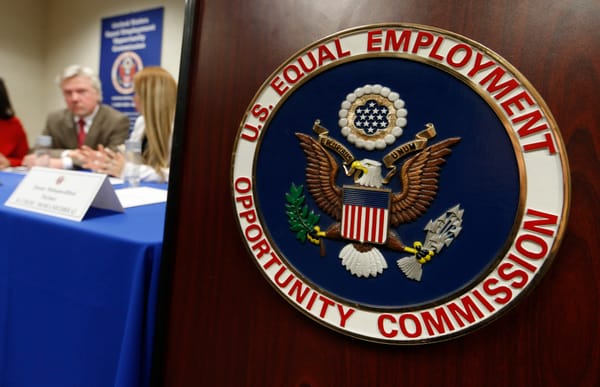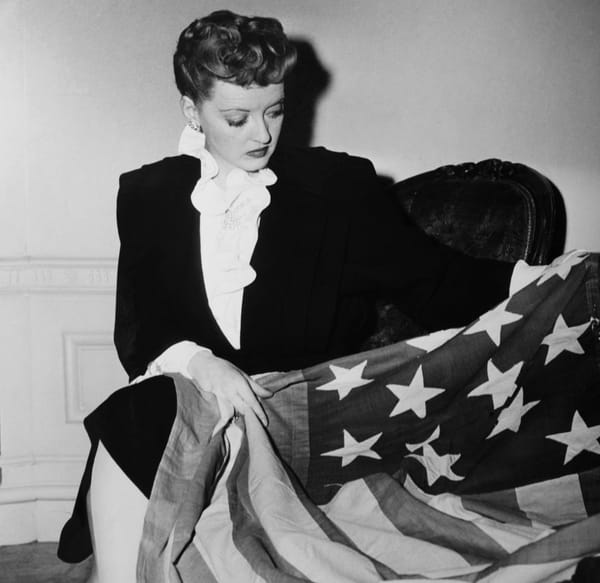It’s a Big Deal That a Woman Is Running For President. Here’s Why.
Despite the support of many, the path for Kamala Harris to the Democratic nomination, and indeed the presidency itself, comes with significant headwinds.

Earlier this month, the New York Times columnist Nicholas Kristof wrote a column under the headline, “It’s No Big Deal That a Woman May Be President. What a Beautiful Thing.”
I can’t argue with him on the second part of that headline. But the first part? It’s actually a very big deal.
On Sunday, Joe Biden officially dropped out of the presidential race, firmly endorsing Vice President Kamala Harris in his stead. Other endorsements followed in quick succession including from former President Bill Clinton, former Secretary of State Hillary Clinton, Sen. Elizabeth Warren, billionaire nonagenarian George Soros, and Gov. Gavin Newsom of California. Headlines ran briefly that Sen. Joe Manchin was considering a run, but then he too stepped back. (At 76, probably best not to put the age thing back to the test. Again.)
By Monday, the former Speaker of the House, Nancy Pelosi had issued a statement endorsing Harris, too.
If things continue on this trajectory, Harris could make history as the country’s first Black and South Asian woman to become a major party’s presidential nominee.
That in itself is huge. But so, too, would be the journey to the nomination, irrespective of whether it ends up as a coronation or a contest.
All Eyes on Harris
The criticize-Kamala campaign has already kicked into gear. In the New York Post, a writer sneered that if Harris were elected, America would be “subjected to the country’s first DEI president.” Then, as if on cue, he went on to point out Harris’s lack of likeability, her cackly laugh and—God forbid, perhaps the biggest crime of all—her ambition. In one swoop, all the misogynistic tropes, as generic as they come, had been trotted out. Check, check, check.
There’s no question that women running for office pay a price for their gender (which Kristof, himself a feminist, readily admits in his column). Kristof refers to this recent Gallup poll which found that 5% of Americans would not vote for a woman for president—because she’s a woman. (Although to be sure a full 70% said they wouldn’t vote for a convicted felon, either.)
But I also keep thinking back to an Ipsos x Daily Beast poll from the 2020 presidential election cycle which showed that while voters individually were prepared to vote for a woman, they were held back by their beliefs about how others would vote. The poll found just one-third of Democrats and independents believed that their neighbors would be comfortable with a female president, according to FiveThirtyEight. Better to go with the crowd and vote for a man, the logic went, than to find yourself in the position of backing a losing candidate. Who wants to back a candidate who can’t win, after all? And if that means bypassing a woman, well, so be it.
A Look Back at 2016
If this anti-women business sounds a bit much, just think back to the 2016 presidential election.
Neither Hillary Clinton nor Donald Trump was particularly well-liked, but attacks against Clinton veered into a particularly ugly place. The BBC referred to it as the “dark depths of hatred.” The Atlantic referred to it as “fervent hostility.”
"I've seen both candidates attacked based upon physical characteristics, both attacked based upon personality traits, both attacked based on past decisions," Jennifer Mercieca, a professor at Texas A&M who is focused on democracy and communication practices, told the BBC.
"The one element that separates the two is that Clinton is also attacked for being a woman, and Trump is not attacked for being a man.”
Perhaps, Mercieca posited, since Clinton was the first major female presidential candidate, people were simply ill-equipped to criticize her beyond gendered and misogynistic slurs.
Several years on, of course, we have shown that it is quite possible to have a woman (vice) president without the world imploding. But misogyny dies hard.
Any candidate running for office will undoubtedly face the brutal judgment of the public, but online violence—specifically gendered disinformation campaigns and violent extremism—is a particular danger to women, the escalation of which can have terrifying real-life consequences. Lest we forget, the plot to kidnap Gov. Gretchen Whitmer of Michigan in 2020 was preceded by weeks of online campaigns spreading disinformation about her.
As for Harris, she entered the vice-presidential office in 2021 amid an onslaught of “sexualized, transphobic, and racist posts which continue to highlight the particular abuse faced by female politicians online,” wrote Alexandra Pavliuc, a researcher at the Oxford Internet Institute, in a piece for The Conversation.
Can we seriously look at each other and say, this time it’s going be different?
What the Public Sees
Toward the end of 2023, Pew invited the American public to share their thoughts on women in politics. For the most part, noted Pew, Americans didn’t seem to think a female president would do a better or a worse job than a male president. Maybe progress had been made after all. But… (and here it comes)... they did see key differences in how women versus men running for office are treated by the media. And many saw women candidates “punished more than men for showing emotions or having young children at home,” Pew noted.
Asked why there was a gender gap of women versus men in public office, respondents pointed to a slew of major obstacles including: women having to do more to prove themselves than men, basic gender discrimination, women getting less support from party leaders, other Americans not being ready to elect a woman to higher office (cue the Ipsos survey again!), family responsibilities, and sexual harassment.
If that isn’t an uphill battle I don’t know what is.
“My intention is to earn and win this nomination,” Harris said soon after Biden’s endorsement of her, making it clear she didn’t see the nomination as a done deal.
Yet one day later, things looked pretty good for her. News stories spoke of Democrats coalescing around Harris, of record-breaking funding filling the coffers, of key leaders smoothing the way. Talk had already turned to who her running mate might be.
But misogyny is still at play. So if Harris clinches the nomination, and even if she does so easily, you'd better believe it will still have been earned.
More from The Persistent.
How Marine Le Pen Uses Her Femininity as a Smokescreen
A (Nearly) 50-50 Gender Split in the U.K.’s New Government. It’s About Time.





